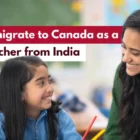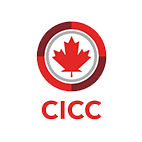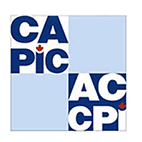Canada has remained a top destination for international students to study, offering high-quality education and diverse cultural experiences. Several international students migrate yearly, hoping for a bright future with world-class education and career opportunities.
However, recently, Immigration, Refugees, and Citizenship Canada (IRCC) announced a slew of changes to the study permit rules to control the growing population and ease economic pressure in the country. The Canadian government wants to reduce the temporary population by 5% by the end of 2026. It is estimated that 5 million temporary permits will expire by the end of 2025, and about 766,000 study permits are set to expire by December 2025.
Here we have listed down the recent changes to study permit rules so that you can be prepared for your education journey in Canada beforehand:
Cap on Student Intake
In September this year, the IRCC imposed a cap on new study permit applications.
- It plans to issue only 437,000 study permits in 2025, a 10% decrease from the 2024 target of 485,000.
- In 2026, this number will be stabilized to 445,662, so the number of study permits issued in 2026 will be almost the same as in 2025.
- Master’s and doctoral students will be included in the 2025–2026 study permit intake cap and should provide a provincial or territorial attestation letter. Approximately 12% of the allocation spaces will be reserved for these students, acknowledging their contributions to Canada’s labour market.
Start Your Study Permit Application
Apply for the Canadian Study Permit with our Licensed Experts.
Changes to Post Graduate Work Permit
The IRCC announced that international graduates who apply for a post-graduate work permit after November 1, 2024, should meet additional field of study requirements to be eligible for a work permit.
- The new rule mandates applicants meet minimum language proficiency standards in French or English. University graduates must achieve a CLB 7 or NCLC 7 in French in all four languages.
- College graduates should attain a CLB Level 5 or NCLC 5 in French in all four language areas (reading, writing, speaking, and listening). As per the government, this will ensure greater adaptability to economic shifts and facilitate their pathway to permanent residence.
- If your study program requires a field of study, you must graduate from a program linked to specific occupations in long-term shortage. The fields of study are divided into five broad categories:
- agriculture and agri-food
- health care
- science, technology, engineering and mathematics (STEM)
- trade
- transport
Student Direct Stream and NSE Stream Closed
Immigration, Refugees, and Citizenship Canada (IRCC) stopped the Student Direct Stream after November 8 and closed the Nigeria Student Express (NSE) stream for study permit applicants from Nigeria. Applicants must now apply for a study permit through the regular study permit stream, which has a longer processing time.
Student Direct Stream (SDS) was launched in 2018 to quicken study permit applications for international students from 14 countries, including India, Pakistan, China and the Philippines.
In addition to other study permit requirements, SDS stream applicants must submit language test results and proof of a Canadian Guaranteed Investment Certificate (GIC) valued at CAD 20,635.
The processing time for SDS applications after receiving biometrics was 20 calendar days. However, depending on the countries where the application is submitted, the processing time for a regular study permit stream is usually more than 20 calendar days.
IRCC stated, ‘Canada’s goal is to strengthen program integrity, address student vulnerability, and give all students equal and fair access to the application process, as well as a positive academic experience.’
Limiting Work Permit Eligibility for Spouses of Students
Work permit eligibility for spouses of master’s degree students is restricted to those enrolled in programs lasting at least 16 months. Similarly, under Canada’s work permit programs (TFWP and IMP), eligibility for spouses of foreign workers is limited to those in management, professional occupations, or sectors experiencing labour shortages.
Additionally, if your spouse or common-law partner is enrolled in a post-graduate diploma or a certificate, your spouse or common-law partner won’t be eligible for an open work permit.
Canada’s New Family Open Work Permits for Spouses of Temporary Residents
A New Study Permit is Required When Changing Institutions
IRCC recently announced that international students must apply for a new study permit when changing learning institutions. This new rule aligns with strengthening the credibility of the International Student Program.
Before this change, students could change their designated learning institutions (DLI) on the same study permit without applying for a new one. They were only required to update their IRCC account with new information.
The IRCC also stated in their press statement that DLIs that fail to submit compliance reports or verify acceptance letters will now face consequences.
International Students Can Work Up to 24 Hours Per Week
International students can work up to 24 hours per week off campus while their semester is ongoing. Immigration Minister Marc Miller announced this development, mentioning that these regulations took effect on November 15.
Before this new rule, international students in Canada could work only 20 hours per week when their classes were ongoing. The immigration minister also mentioned that imposing the limit of 24 hours per week enables striking the right balance between providing job opportunities to students and focusing on their studies simultaneously.
Take Professional Help from Licensed Experts
Canada’s new study permit rules for 2025 introduce key changes to improve program integrity and manage international student intake. These updates include a reduced study permit cap, revised Post-Graduation Work Permit (PGWP) eligibility, increased off-campus work hours, and the discontinuation of the Student Direct Stream (SDS).
While these changes create new opportunities, they also come with stricter regulations. At Elaar Immigration, we help international students navigate these evolving policies.









